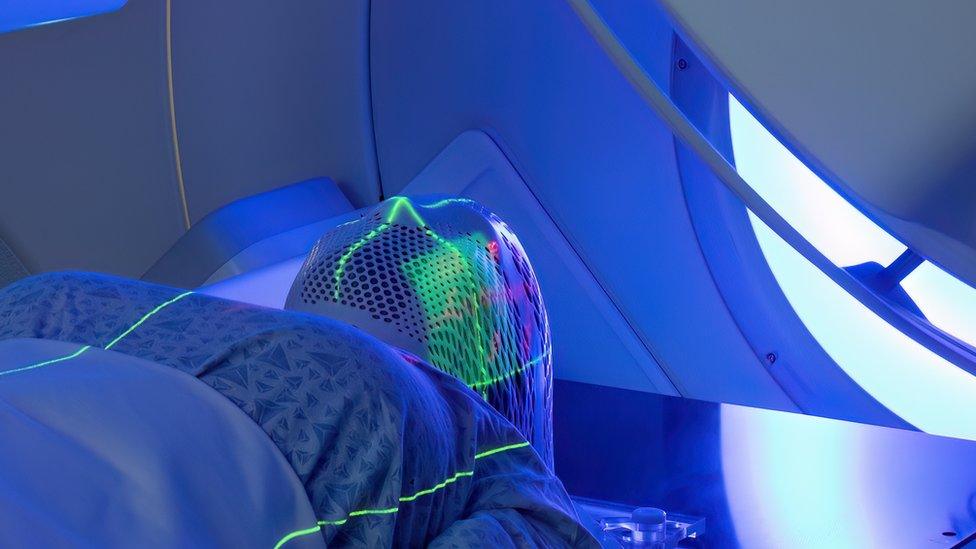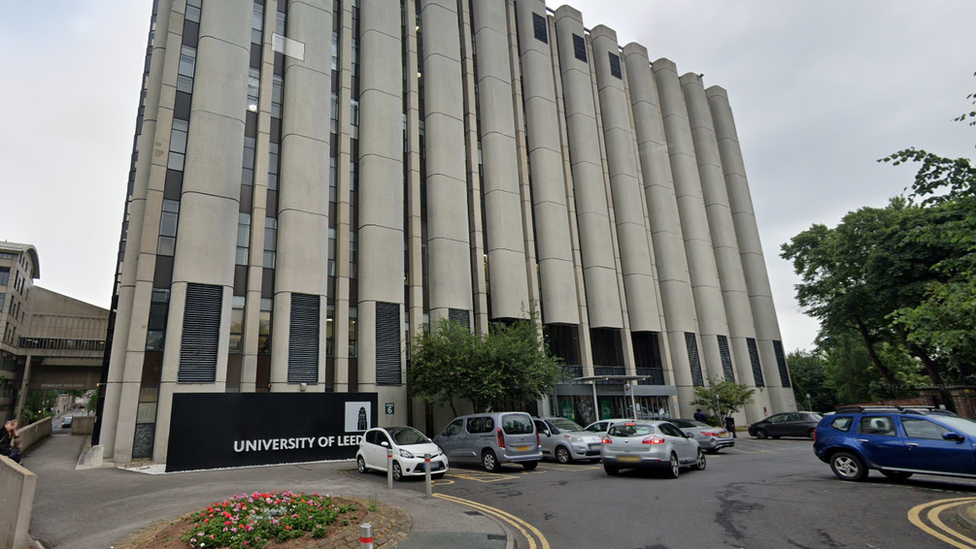Brain cancer proton treatment trial led by Leeds experts
- Published

The treatment may reduce the side effects of standard radiation therapy, said experts
Leeds experts are examining whether new technology could mean fewer treatment side effects on brain cancer sufferers.
The clinical trial, called APPROACH, will check whether proton beam therapy can kill cancer cells but leave surrounding tissue less affected than radiotherapy.
The research is led by doctors from University of Leeds' School of Medicine
A spokesperson said the trial was "vital" to determine how to give patients the "best possible future".
Experts said the highly-charged proton beams released a powerful burst of energy at the brain tumour site that delivered less radiation to the wider area.
This meant patients could suffer fewer side effects such as memory loss or difficulty processing information that could be associated with standard radiotherapy.
'Huge impact'
The trial is being funded by the National Institute for Health and Care Research (NIHR), external and is open to patients with oligodendroglioma brain cancer, which is diagnosed in about 350 UK patients each year.
The trial is co-led by senior medics Dr Louise Murray and Prof Susan Short.
It will take place at the UK's two proton beam centres in London and Manchester.
Dr Murray said: "We really need to know if this new technique can help reduce damage to the healthy brain tissue that surrounds a tumour, so that fewer patients have their lives affected by cognitive problems that can have a huge impact on daily life."
The current method of radiation therapy to treat cancer has been used successfully for more than 100 years.
It uses x-ray photons that destroy cancer cells but can also damage healthy tissue as the rays continue to pass through the body past the tumour.
Dr Murray added: "We need high-quality clinical trials to determine whether proton beam therapy is a better treatment for certain cancers."

Follow BBC Yorkshire on Facebook, external, X (formerly Twitter), external and Instagram, external. Send your story ideas to yorkslincs.news@bbc.co.uk, external.
Related topics
- Published12 December 2023

- Published23 January 2024
